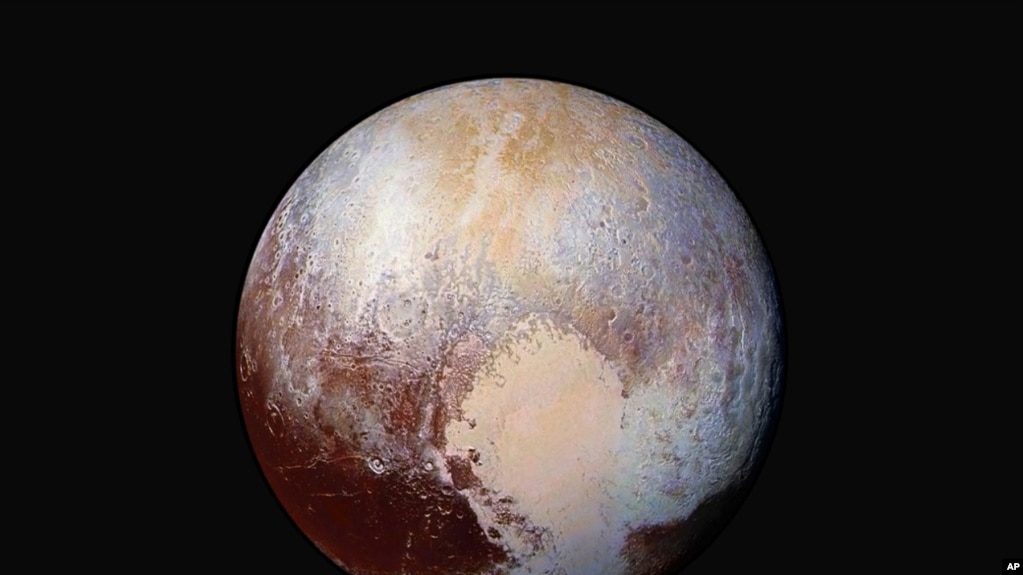Confounding
Gold Member
- Jan 31, 2016
- 7,073
- 1,555
- 280
- Banned
- #1
"Dibs!"
-Nestlé
NASA's New Horizons team discovers vast reserves of H2O ice on Pluto
Sno-cones for everyone! NASA's New Horizons scientific team headquartered at Johns Hopkins University just revealed some intriguing new updates on the amount of water ice potentially on Pluto. This false-color image below, derived from infrared light observations by the spacecraft's Ralph/Linear Etalon Imaging Spectral Array (LEISA) instrument, shows where the unique spectral features of concentrated water ice are amazingly abundant on Pluto’s frigid surface.
-Nestlé
NASA's New Horizons team discovers vast reserves of H2O ice on Pluto
Sno-cones for everyone! NASA's New Horizons scientific team headquartered at Johns Hopkins University just revealed some intriguing new updates on the amount of water ice potentially on Pluto. This false-color image below, derived from infrared light observations by the spacecraft's Ralph/Linear Etalon Imaging Spectral Array (LEISA) instrument, shows where the unique spectral features of concentrated water ice are amazingly abundant on Pluto’s frigid surface.

